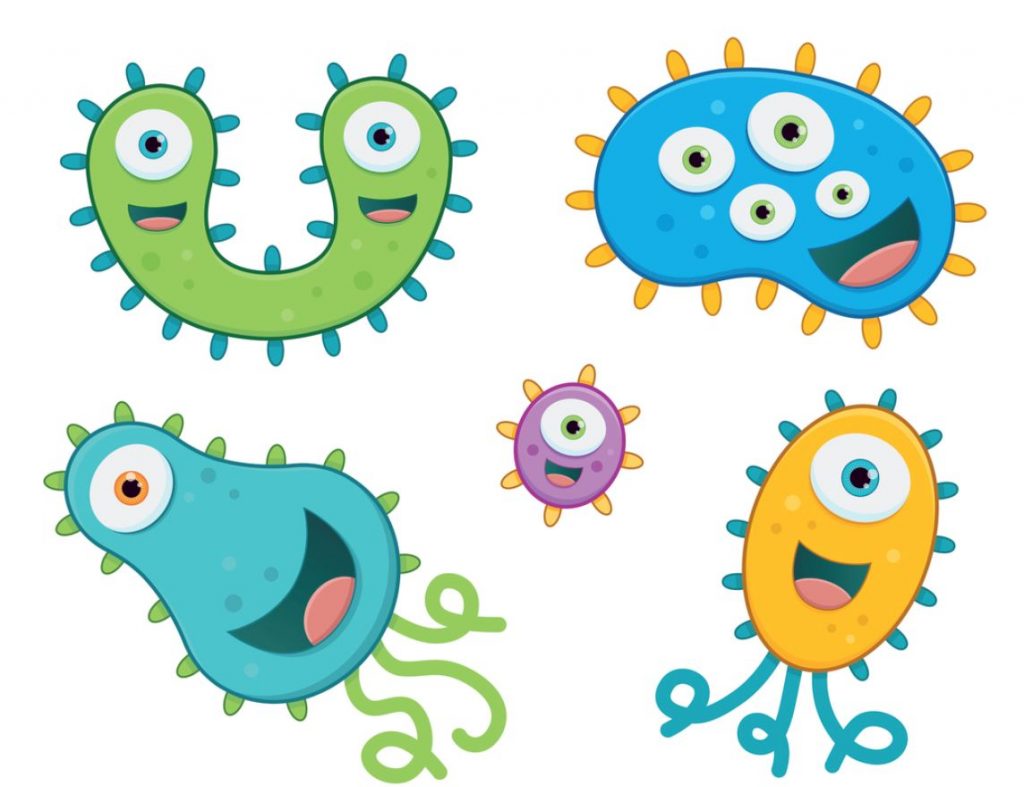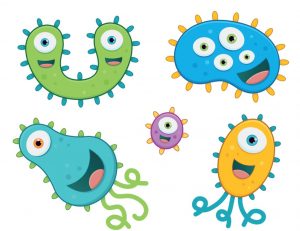
More intestinal mucus is better. Especially if it is microbially diverse and full of A. muciniphila. A healthy thick gut mucus lining environment boasts an abundance of A. muciniphila and is associated with decreased glucose and less inflammation. A thinner mucus layer is associated with increased diabetes risk and inflammation.
A. muciniphila, discovered only a decade ago, has the important and complex job of maintaining the mucus layer that lines the intestines. Hence the name, mucinphila or mucus loving. An intestinal mucus layer full of A. mucinphila seems to be important. This bacterium makes up just 3 to 5 percent of all gut microbes, yet it’s the main microbe floating in the mucus layer and it’s busy.
The Role of A. muciniphila
A. muciniphila prompts cells to increase mucin production which contributes to a healthy intestinal mucus layer and prevents pathogens from escaping the intestine and entering into circulation.
In rodent studies, A. muciniphila nudges the cells that line the intestine to release more endocannabinoids, which reduce inflammation and prompt release of the gut hormones, GLP-1 and GLP-2. Gut hormones lower post meal glucose levels.
A. muciniphila also helps to create small chain fatty acids from the breakdown of microbiota available carbohydrates (MACs). Fatty acids are associated with a healthier gut. They lower the intestinal pH and create a lumen environment that supports healthy bacterial diversity.
How can we increase A. muciniphila?
Metformin is associated with increased levels of A. muciniphila. Animal studies consistently show that metformin significantly promotes A. muciniphila abundance.
Eating certain whole foods and avoiding high fat diets.
Studies show that polyphenols derived from grapes and cranberries increase the abundance of Akkermansia. This results in enhanced intestinal barrier function and incretin secretion from intestinal endocrine cells. Together, these actions suppress obesity, insulin resistance, and intestinal inflammation.
In another study, apple-derived macromolecular procyanidins induced an increase in the abundance of intestinal Akkermansia leading to anti-inflammatory effects in a mouse model with metabolic syndrome.
Research has also shown that avoiding a high-fat diet and heavy alcohol intake can increase A. muciniphila abundance.
Probiotics – studies are being done to see if A. mucinphila supplements can also increase intestinal levels. There is so much more info coming out everyday about this bug superstar.
View our FREE On-Demand Webinar – Getting to the Gut, Meet Your Microbiome

This one-hour complimentary journey will expand your view of how trillions of bacterial hitchhikers profoundly influence our health. We will discuss how foods, the environment and our medical practices have impacted our gut bacteria over time and strategies we can take to protect these old friends. Join us!
Gut Bacteria Resource Page & Printable Handouts
Sign up for Diabetes Blog Bytes – we post one daily Blog Byte from Monday to Friday. And of course, Tuesday is our Question of the Week. It’s Informative and FREE! Sign up below!
[yikes-mailchimp form=”1″]







